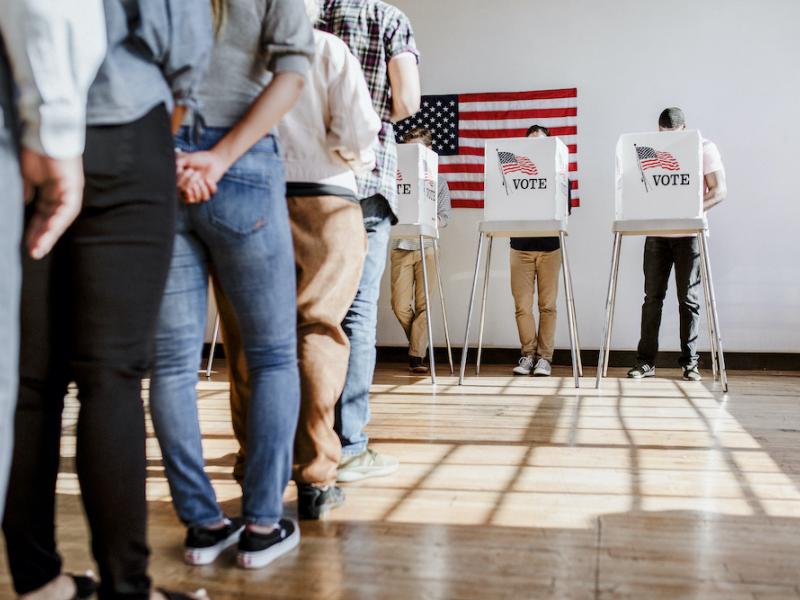
One might think that the thunderbolt of election results last Tuesday would convince Democrats that they have some serious problems. Apparently not.
A cadre of Democrats seem to believe their losses stemmed from the internal—yet very public—party dysfunction over getting the infrastructure and reconciliation bills through Congress. Now, they hope, with the former headed to President Biden’s desk and the latter possibly soon to follow, surely the political winds will shift in their favor. That’s unlikely.
Losing all three constitutional offices and their majority in the House of Delegates in purple-trending-blue Virginia was bad enough. In many ways, New Jersey Gov. Phil Murphy’s close call and the state Senate president losing to a truck driver whose campaign budget was apparently in four figures is even more damning. But the problems were not limited to those states.
As Matt Viser, Cleve Wootson, and Karina Elwood wrote in Monday’s Washington Post, “While President Barack Obama provided a glue for the party in 2008 and 2012 and the animosity toward President Donald Trump brought all factions together in 2016 and 2020, the party of 2021 often functions more like a collection of smaller tribes spanning an ideological spectrum from socialism to centrism.”
More direct and undoubtedly more chilling for Democrats was the headline of my National Journal colleague Josh Kraushaar’s most recent “Against the Grain” column, “Democrats fear political wipeout in next year’s midterms.”
Several commentators suggested that disillusioned Democrats simply didn’t turn out in either state. They point to the 5-point drop in support for the Democratic candidate, from Gov. Ralph Northam’s 54 percent four years ago to Terry McAuliffe’s 49 percent last week. But it’s not quite so simple. While McAuliffe pulled 188,548 more raw votes than Northam, Glenn Youngkin tallied 487,975 more than Northam’s GOP opponent, Ed Gillespie. In short, the Republican vote soared while the Democratic vote merely increased.
The same is true in New Jersey. In 2017, Murphy drew 1,203,110 votes to get 56 percent of the vote. This time the incumbent received 82,241 more votes, but that netted him only 51 percent. Republican candidate Jack Ciattarelli’s 1,219,906 raw votes dwarfed the GOP vote of 899,583 from four years ago.
So what is weighing down Democrats?
For starters, much like real estate is about location, location, and location, politics is about timing, timing, and timing. It is not clear to me that Youngkin was a much better candidate than Gillespie, or that Ciattarelli was much better than Kim Guadagno. The difference is that Gillespie and Guadagno had to run under the same flag as Donald Trump, a very unpopular president in their states. This time, it was McAuliffe and Murphy who had the honor of being saddled with the burden of President Biden and his plummeting numbers. These days, all politics is national.
As the two parties have become more ideologically cohesive, their increasing lack of diversity on values and policy has created another problem: a growing intolerance of elected officials and party activists who do not fully subscribe to the prevailing and increasingly ideological party dogma. There is a pressure not to yell “BS” when people in their own parties go way too far, damaging the overall brand of the party.
Democrats are understandably livid over Youngkin’s use of critical race theory as an issue, correctly pointing out that one would not only not find CRT taught in any elementary or secondary public school in Virginia, but would be hard-pressed to find it taught in any elementary or secondary school in the country. Still, the issue obviously rang true with some voters.
Why? Partly because voters have seen progressives’ unsuccessful efforts in San Francisco to take the names of Washington, Jefferson, and Lincoln off of schools. Or the more successful effort in Falls Church, Virginia, to rechristen schools named after Jefferson and George Mason. The same happened in Peoria, Illinois. These kinds of things raise hackles with independents and drive Republicans nuts—or, at least, to the polls.
Democrats, and for that matter Republicans, would be well advised to become a bit more self-aware about not only their own words and actions, but those of others in the party that get projected onto the entire party, either fairly or not.
Democrats have a brand problem. It isn’t just about the two bills.
The article was originally published for the National Journal on November 9, 2021.


Subscribe Today
Our subscribers have first access to individual race pages for each House, Senate and Governors race, which will include race ratings (each race is rated on a seven-point scale) and a narrative analysis pertaining to that race.